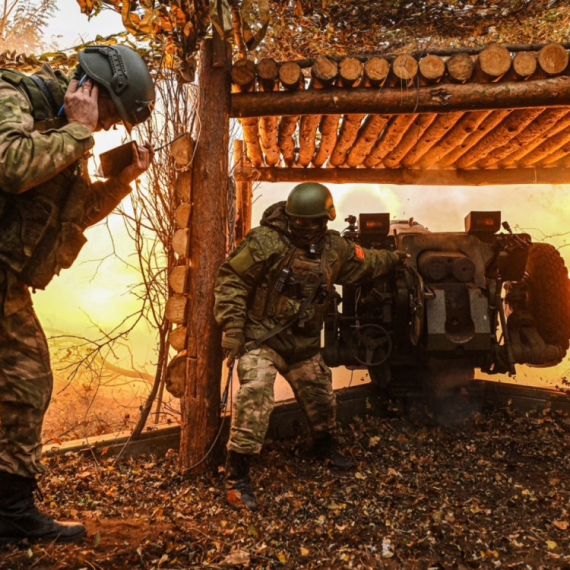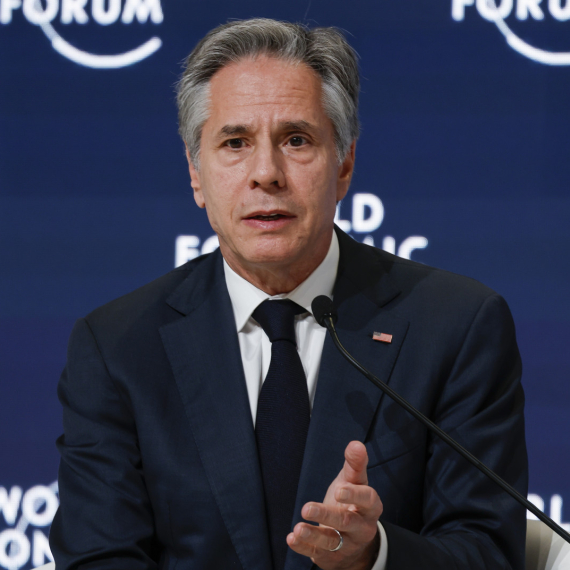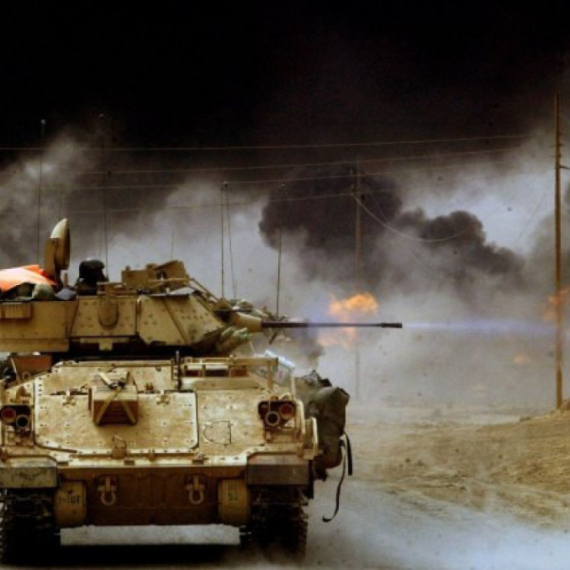EU to form firefighting force
One of the EU's newest nations, Bulgaria, had to turn to Russia for help, faced with sweeping forest fires this summer.
Saturday, 11.08.2007.
17:25

EU to form firefighting force
But when one of the European Union's newest nations, Bulgaria, requested such help this year, it found that all the firefighting aircraft were already in use. In desperation, the government in Sofia had to rely on Russia instead.Chastened by that experience and overstretched after one of the worst months for forest fires on record, the European Union is drawing up plans that could lead to the creation of an emergency firefighting force.
The idea has gained support because of the growing number of extreme weather events that many scientists have linked to climate change. A firefighting fleet also appeals to policy makers eager to demonstrate to voters that the EU is making a practical contribution.
President Nicolas Sarkozy of France and Prime Minister Costas Caramanlis of Greece have expressed support, as has the EU's environment commissioner, Stavros Dimas.
"We are studying the alternatives and will come forward with the options after the summer," said Barbara Helfferich, spokeswoman for Dimas.
But making such a fleet a reality will test the Union's capacity to spend money and pool resources to combat the growing range of problems that cross borders. A similar initiative designed to help countries deal with sudden flows of migrants arriving at their borders has so far proved disappointing.
First proposed last year, the idea of putting a European fleet of water-bombing aircraft on standby has gained momentum after a devastating series of fires in July. While parts of northern Europe, including the middle of England, were suffering floods, vacationers in southern Italy had to be evacuated from beaches by boat and helicopter when forest fires trapped them.
Provisional figures show that about 337,000 hectares, or 833,000 acres, of land had burned in Europe by the end of July, as against about 358,000 hectares in all of last year. According to the European Forest Fire Information System, which is managed by the European Commission and which released the figures, this July was one of the worst months on record.
The EU's Monitoring and Information Center, which coordinates pleas for assistance among European nations, received eight requests for help in July, from Greece, Cyprus, Italy, Bulgaria and Macedonia.
The Bulgarians found themselves fighting to contain dozens of fires, the largest of which was near the city of Stara Zagora, where the mountainous terrain rendered normal fire equipment useless.
None of the 30 countries participating in the Monitoring and Information Center (the 27 EU countries plus Norway, Iceland and Liechtenstein) were able to meet Sofia's request for four helicopters with specialized water buckets and two firefighting planes. Only after the Russians stepped in, under a bilateral agreement, did the situation stabilize.
After talks last month, Sarkozy and Caramanlis agreed on the need for closer cooperation on firefighting, an idea proposed last year by Michel Barnier, former European commissioner for regional policy and now the French agriculture minister.
Dimas said he was heartened by the support of Sarkozy and Caramanlis.
"Reality proves that this idea, which was at the basis of a report presented by Mr. Barnier last year, is a necessary step for the member states," he said.
In that report, Barnier called for a uniformed European civil protection force with a minimum of 10 aircraft to be on standby, ready at 12 hours' notice.
One major issue is whether the EU or the national governments would own the planes: each costs about €19 million, or $26 million. At present, countries have their own fleets and do not generally charge to lend them to other nations that are battling fires.
If a European firefighting force were set up independent of national governments, it would face difficult questions about how to deploy planes when resources were overstretched.
After studying the options, officials are likely to produce a policy for approval by the European Commission. That would then require the approval of member states before a European firefighting fleet could finally become airborne.


























































Komentari 1
Pogledaj komentare